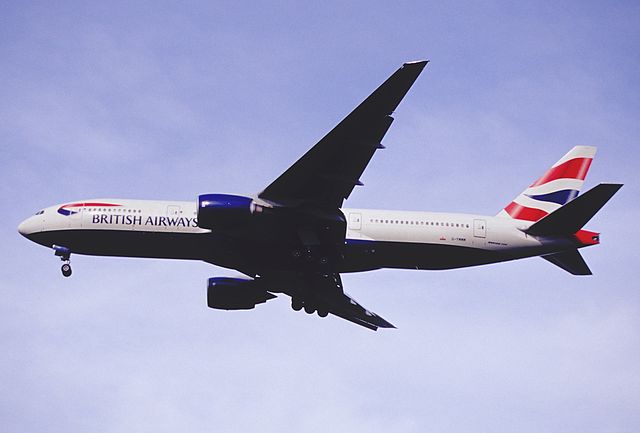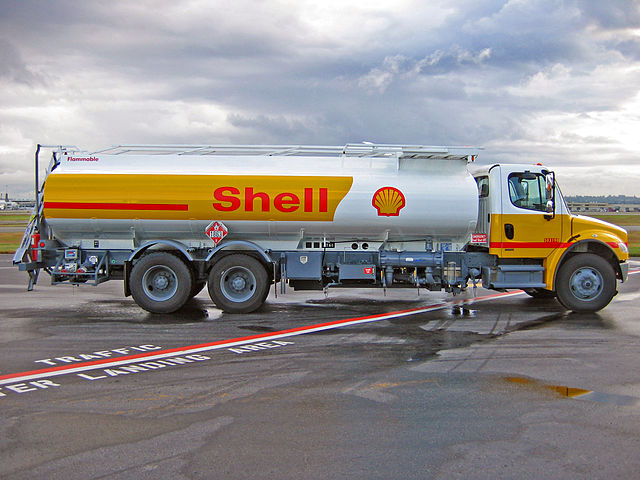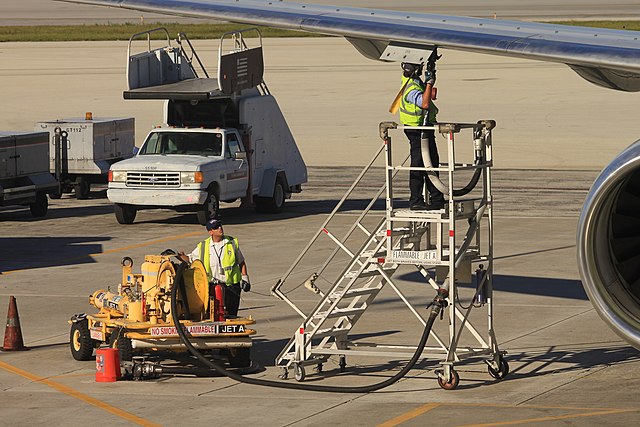British Airways Flight 38
British Airways Flight 38 was a scheduled international passenger flight from Beijing Capital International Airport in Beijing, China, to London Heathrow Airport in London, United Kingdom, an 8,100-kilometre trip. On 17 January 2008, the Boeing 777-200ER aircraft operating the flight crashed just short of the runway while landing at Heathrow. No fatalities occurred; of the 152 people on board, 47 sustained injuries, one serious. It was the first time in the aircraft type's history that a Boeing 777 was declared a hull loss, and subsequently written off.
G-YMMM after the crash at London Heathrow Airport.
G-YMMM, the aircraft involved in the accident in May 2002
Illustration of cavitation in the high pressure fuel pumps used in the Trent 800 engines on the Boeing 777. When fuel flowing into the pump falls to very low pressure, gas bubbles form in the fuel. Bubble collapse on the high pressure side can cause damage to the pump's outlet ports.
Mock-up of G-YMMM's fuel delivery system
Jet fuel or aviation turbine fuel is a type of aviation fuel designed for use in aircraft powered by gas-turbine engines. It is colorless to straw-colored in appearance. The most commonly used fuels for commercial aviation are Jet A and Jet A-1, which are produced to a standardized international specification. The only other jet fuel commonly used in civilian turbine-engine powered aviation is Jet B, which is used for its enhanced cold-weather performance.
An Airbus A310-300 of Czech Airlines being fueled at Prague Václav Havel Airport
Shell Jet A-1 refueller truck on the ramp at Vancouver International Airport. Note the signs indicating UN1863 hazardous material and JET A-1.
A US Airways Boeing 757 being fueled at Fort Lauderdale–Hollywood International Airport
An Iberia Airbus A340 being fueled at La Aurora International Airport








